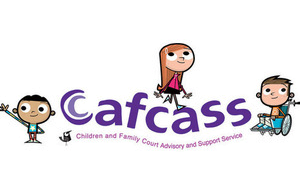When I wrote my last blog post about Parental Alienation I hadn’t seen the helpful website The Voice of the Child. This campaigning organisation has been doing much to bring to light the considerable failings of CAFCASS. Anyone currently involved in a case like this in the family court should explore their website and particularly the section entitled ‘CAFCASS tools’.
If you’re involved in a parental alienation case then you might find that CAFCASS are using these tools and what they call ‘knowledge bites’. The Voice of the Child has asked CAFCASS a lot of questions about them.
In relation to the Child Impact Assessment Framework:
‘Please detail how Cafcass determines the ‘presence of implacable hostility’, as used in the sentence “The presence of implacable hostility may result in a recommendation by Cafcass for a Section 7 report to be carried out in which the child’s wishes and feelings can be assessed ……”. What markers, tools, standards or any other methods does Cafcass apply to either determine that implacable hostility is present, or to determine that implacable hostility is not present?’
Cafcass replied:
‘All practitioners are qualified social workers and any determinations by a practitioner within a case are specific to that case and are based on their professional judgement of the child’s welfare. If judged to be required, Cafcass has a ‘tool’ and a ‘knowledge bite’ to help assist our practitioners in being able to assess the presence of implacable hostility in private law cases. The ‘coached children’ knowledge bite summarises research on the issue and the ‘Impact of parental conflict tool’ can be used by practitioners to analyse the impact of parental conflict and the level of parental influence on a child’s wishes and feelings.’
That answer should terrify you. Here’s why. The Voice of the Child website helpfully provides copies of these ‘tools’ and ‘knowledge bites’. They turn out to be very short summaries, prepared by CAFCASS workers and based on one single academic reference.
In answer to another question CAFCASS replied:
‘Cafcass does not have a specific policy on the use of the tool or on the impact of parental conflict. The use of this tool is a matter for the practitioner’s professional judgement.’
In other words they rely on anecdotal experience and prejudice, so you can imagine the likely lack of consistency between CAFCASS workers. Consequently you’re in a minefield as soon as you come into contact with CAFCASS as there’s no quality assurance of the work they perform.
What can you do in this situation?
Firstly, take a look at what CAFCASS officers are being told to look for when using the Impact of parental conflict tool. There are 10 questions which come into play if the answer is deemed to be ‘significantly’.
The tool states:
The following indicators should be used in identifying and analysing emotionally harmful impact of parental conflict on the child. Refer to these indicators in your report in the relevant section e.g. child impact analysis and recommendations:-
- The child describes one parent entirely negatively, the other entirely positively.
- The reasons given for the dislike of one parent may appear to be justified, but investigation shows them to be flimsy and exaggerated.
- The child proffers the opinion of wanting less contact with one parent in a way which requires little or no prompting.
- The complaints have a quality of being rehearsed or practised.
- The child seems to show little or no concern for the feelings of the parent being complained about.
- Comments are inappropriate in view of the child’s age/developmental stage.
- The child’s anxiety and reactive behaviour to the contact are disproportionate to the risk identified.
- Siblings provide highly consistent responses when it is probable that due to age, position within the family and individual characteristics their wishes and feelings could be expected to differ.
- The rejected parent had a good relationship with the child prior to separation.
- Emotional warmth from the resident parent directly correlates with the child remaining resistant to contact.
You’ll have an uphill struggle and there are no guarantees but as soon as you think parental alienation is being considered in your case:
- Start making a record of everything that happens to illustrate any of the problems listed above. Be methodical and record everything relevant.
- Try to get witnesses who will back you up by confirming that you’ve had a good relationship with the child before the breakdown in the relationship with the other parent. Obviously family members will be helpful but others who might be judged to be less partisan would be better, especially if they know the child well too.
- Don’t be provoked by your ex into behaving badly during the course of the court case. That will only backfire on you. Don’t meet them without taking someone else who is reliable with you as a witness. You may be facing someone who will tell blatant lies to paint you as being a serious problem and a danger to your child.
- Try not to show your understandable emotional reaction in any interactions you do have with the child. Try to be as you were, so the child doesn’t see you as different.
- Stay calm and controlled when seeing the CAFCASS officer and don’t refer to the problems you’ve read about CAFCASS (such as these ones!). That’s likely to alienate the officer. Try to get the officer on your side and wanting to make recommendations that might help, like involving a therapist with experience of parental alienation.
Jill Canvin
Founder ONRECORD


